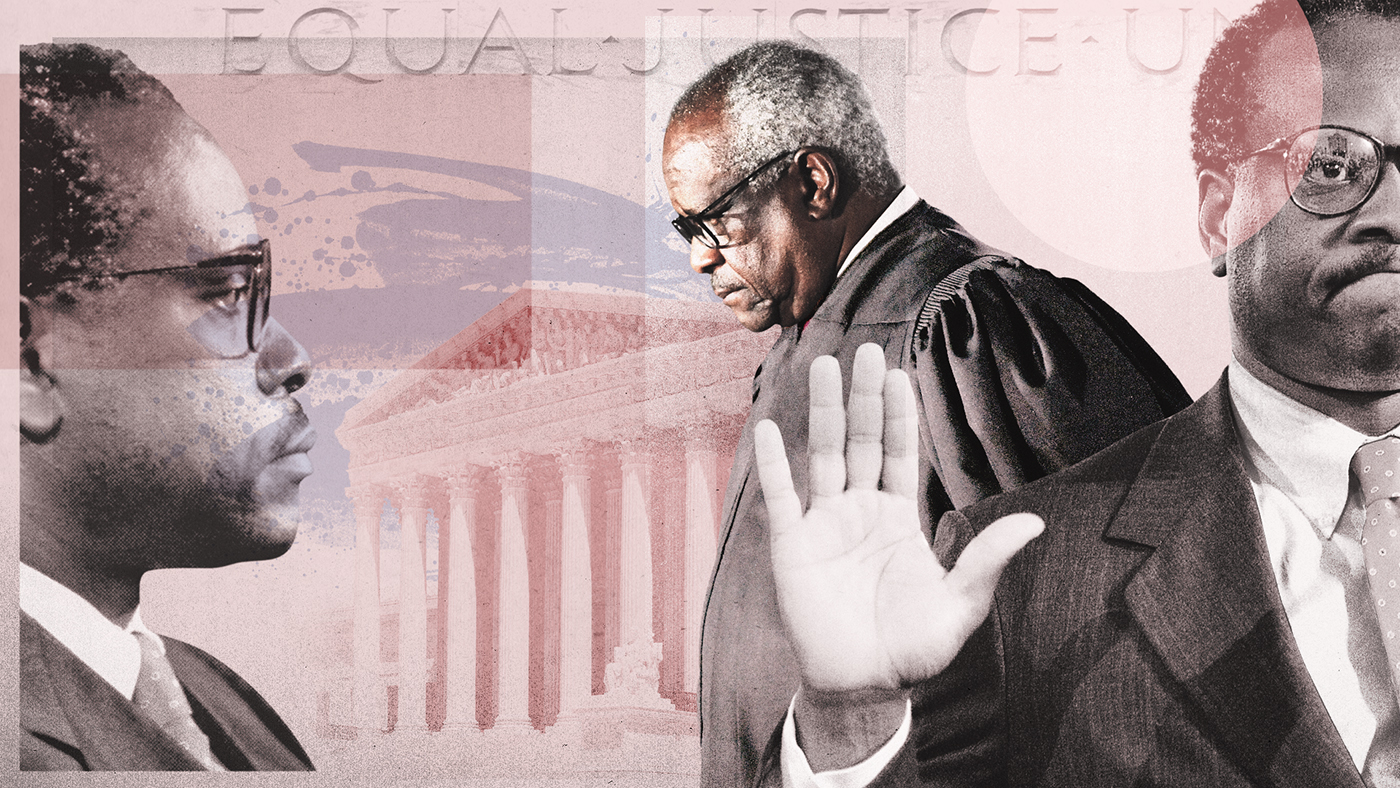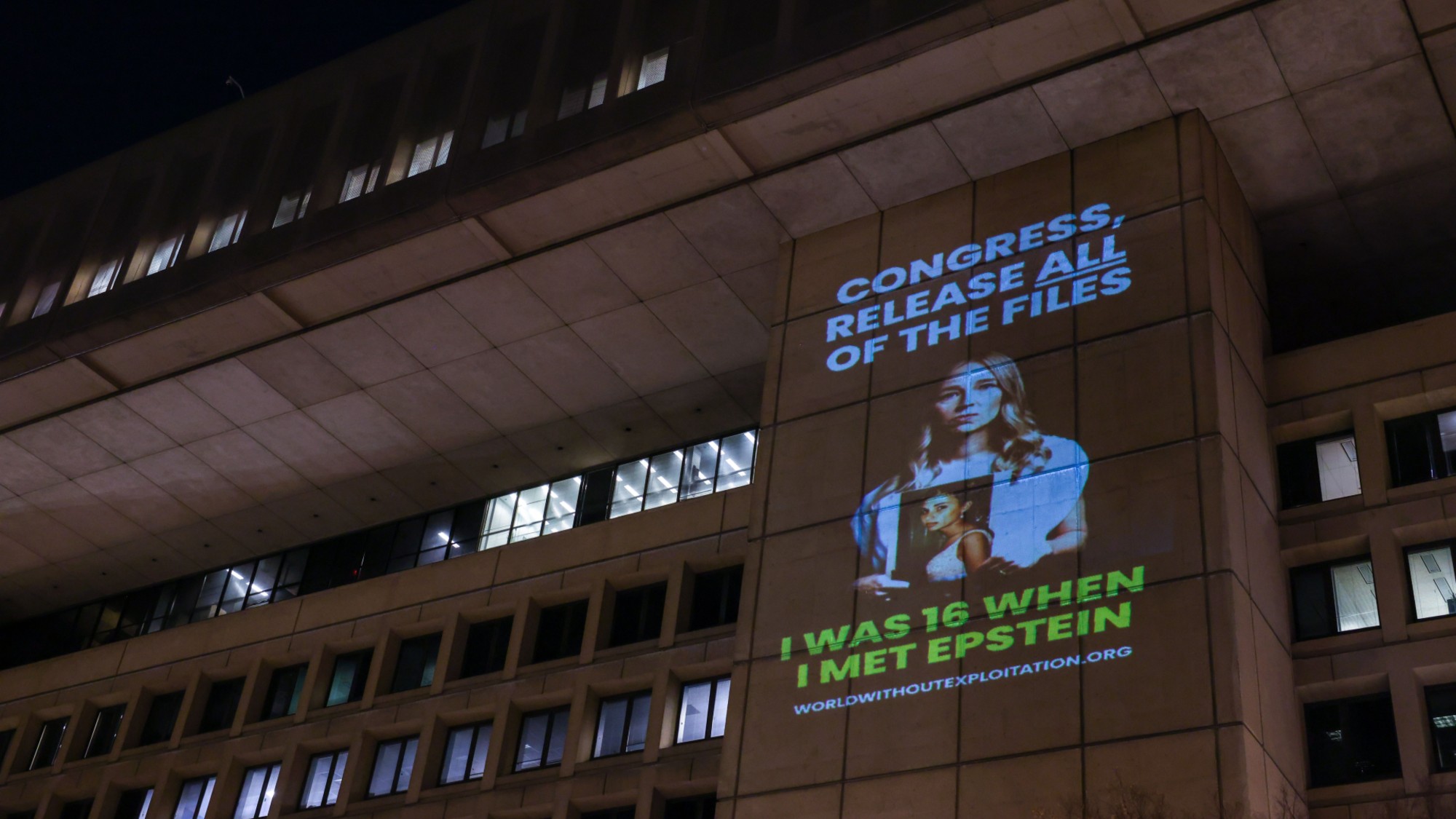A running list of Clarence Thomas' controversies
From lavish undisclosed vacations gifted by billionaires to conflicts of interest involving his wife, Thomas has become the face of judicial ethics reform


A free daily email with the biggest news stories of the day – and the best features from TheWeek.com
You are now subscribed
Your newsletter sign-up was successful
Congress carries America's wallet and the executive branch controls the nation's military and most of its law enforcement tools, but the Supreme Court's power is tied to its perceived legitimacy. Given that the high court has the final say on the laws governing all Americans, the integrity of its nine members should be above reproach. Justice Clarence Thomas has made that harder.
Unlike other federal judges, Supreme Court justices had no formal code of ethics until November 2023. Compliance with the rules they adopted is largely voluntary — there is "no arbiter to enforce, apply or even interpret these rules" apart from the individual justices themselves, said Michael Waldman at the Brennan Center for Justice. But the principal reason they have an ethics code at all is a series of scandals involving Thomas.
1. Luxury vacations from billionaire benefactors
Since his ascension to the Supreme Court 30 years ago, "Thomas has enjoyed steady access to a lifestyle most Americans can only imagine," including "at least 38 destination vacations," 26 private jet flights, voyages on luxury yachts, "two stays at luxury resorts in Florida and Jamaica," and other opulent vacations, all of it "underwritten by benefactors who share the ideology that drives his jurisprudence," ProPublica reported in August 2023. His biggest benefactor has been Dallas billionaire Harlan Crow.
The Week
Escape your echo chamber. Get the facts behind the news, plus analysis from multiple perspectives.

Sign up for The Week's Free Newsletters
From our morning news briefing to a weekly Good News Newsletter, get the best of The Week delivered directly to your inbox.
From our morning news briefing to a weekly Good News Newsletter, get the best of The Week delivered directly to your inbox.
The value of these trips "is difficult to measure" but "likely in the millions," ProPublica said. And Thomas disclosed none of it on his financial disclosure forms, arguably violating the Ethics in Government Act of 1978.
"In my career I don't remember ever seeing this degree of largesse given to anybody," former federal judge Jeremy Fogel, who served for years on the judicial committee that reviews judges' financial disclosures, said to ProPublica. "I think it's unprecedented."
Even before ProPublica's reporting, Thomas had "engaged in a yearslong pattern of behaving in ways that other justices, and many elected politicians, do not," David Leonhardt said at The New York Times. "From 1998 through 2003, Thomas accepted $42,200 in gifts, making him the top gift recipient on the court at the time" by about $36,000. After the Los Angeles Times highlighted these gifts in 2004, Thomas just stopped reporting them on his financial disclosure forms.
Thomas said in a 2023 statement that early in his tenure on the Supreme Court he was "advised that this sort of personal hospitality from close personal friends, who did not have business before the court, was not reportable." He has since "endeavored to follow that counsel throughout my tenure."
A free daily email with the biggest news stories of the day – and the best features from TheWeek.com
Senate Judiciary Democrats in June 2024 disclosed three more unreported private jet trips gifted to Thomas by Crow, and revealed another two Crow-financed trips in a final report in December 2024. The senators said they only learned about the travel after threatening to subpoena Crow.
2. Selling mother's home to Crow
Thomas also failed to report in 2014 that Crow bought three properties he and his family owned in Savannah, Georgia — including the house Thomas' elderly mother lives in, ProPublica said. As part of the deal, the mother, Leola Williams, "was given an occupancy agreement to be able to live in the home for the rest of her life," CNN said. "She lives rent-free but is responsible for paying the property taxes and insurance."
Crow told The Dallas Morning News he was interested in turning the house into a museum honoring "the boyhood home of a great American." Thomas still had to report the sale, Gabe Roth, who heads the advocacy group Fix the Court, said to CNN. "That's the law — even if Justice Thomas lost money, and even if the sale was to build a museum one day."
3. Private school tuition from Crow
Thomas and his wife, Ginni, became legal guardians of his grandnephew Mark Martin in 1998 and raised him "as a son," as Thomas has said, from age 6 to 19. And when Thomas decided to send his ward to private boarding school for high school, Crow picked up the tab for at least two years, at a cost of more than $100,000, ProPublica said. He did not report the gifted tuition on his disclosure forms.
4. The Ginni Thomas texts non-recusal
Ginni Thomas, long involved in Republican politics, became a prominent conservative activist when she joined the Heritage Foundation as a White House liaison in 2000 and then founded a Tea Party organization, Liberty Central, in 2009 — with $500,000 from Harlan Crow, Politico said in 2011.
Her partisan activism, always discomfiting for the spouse of a Supreme Court justice, became especially awkward when she became involved in the legal battle to keep President Donald Trump in power after his 2020 loss.
Those efforts, including text messages imploring Trump's chief of staff Mark Meadows to fight the defeat, constituted an evident conflict of interest for her husband when those legal challenges inevitably ended up at the Supreme Court. But Justice Thomas did not recuse himself. And he sided with Trump in at least two related cases, including casting the lone dissenting vote in January 2022 when the Supreme Court ordered that Trump White House insurrection-related documents be turned over to the House committee investigating the Jan. 6 siege.
A "casual observer might assume" the couple was "working in tandem, with Clarence handling the law and Ginni working on the political side," Dahlia Lithwick and Mark Joseph Stern said at Slate. "They aren't particularly subtle about it."
5. Secret contracting payments for Ginni Thomas
Conservative judicial activist Leonard Leo arranged $80,000 to $100,000 in secret consulting payments for Ginni Thomas in 2011 and 2012, telling GOP pollster Kellyanne Conway the billing paperwork should have "no mention of Ginni, of course," the Washington Post said. Leo told Conway to bill a nonprofit he advised, the Judicial Education Project, and funnel the money to Thomas' business, Liberty Consulting.
Leo told the Post that Ginni Thomas' work for him was not "connected with either the [Supreme] Court's business or with other legal issues," and he kept her name off the paperwork to protect her privacy from "disrespectful, malicious, and gossipy people."
Leo — whose network of nonprofits have spent hundreds of millions of dollars on getting conservative judges on federal courts — told the Post that Ginni Thomas' work for him "did not involve anything connected with either the [Supreme] Court's business or with other legal issues," and he kept her name off the paperwork because "knowing how disrespectful, malicious, and gossipy people can be, I have always tried to protect the privacy of Justice Thomas and Ginni."
6. The mysterious luxury RV loan
Clarence Thomas bought his dream recreational vehicle, a used Prevost Le Mirage XL Marathon, for $267,230 in 1999 — but he didn't pay for it, The New York Times said in August 2023. Instead, he borrowed the money from a longtime friend, Anthony Welters, and there's no record he ever paid back anything but interest on the loan, or paid the taxes necessary if Welters forgave the quarter-million dollars.
Welters told the Times he lent Thomas the money to buy the RV, and the 7.5% interest-only loan "was satisfied" in 2008. He didn't elaborate. But none of the documents Welters handed over "indicated that Thomas ever made payments" in excess of the "annual interest on the loan," Senate Finance Committee Democrats said, and Thomas did not disclose the forgiven debt on his 2008 financial disclosure report.
8. Thomas hinted he would quit as largesse began
A month after he bought the luxury RV, "Thomas was hundreds of thousands of dollars in debt and becoming increasingly frustrated with his financial standing," and his complaints about his salary left conservative Rep. Cliff Stearns (R-Fla.) "worried that Thomas might step down," Politico said in December 2023.
Thomas started privately lobbying Congress for higher judicial salaries "just as he was developing his relationships with a set of wealthy benefactors" from whom he "accepted a stream of gifts" apparently "unparalleled in the modern history of the Supreme Court," ProPublica said. And "around 2000, chatter that Thomas was dissatisfied about money circulated through conservative legal circles and on Capitol Hill."
"His importance as a conservative was paramount," Stearns said to ProPublica. "We wanted to make sure he felt comfortable in his job and he was being paid properly."
Peter has worked as a news and culture writer and editor at The Week since the site's launch in 2008. He covers politics, world affairs, religion and cultural currents. His journalism career began as a copy editor at a financial newswire and has included editorial positions at The New York Times Magazine, Facts on File, and Oregon State University.
-
 Political cartoons for February 15
Political cartoons for February 15Cartoons Sunday's political cartoons include political ventriloquism, Europe in the middle, and more
-
 The broken water companies failing England and Wales
The broken water companies failing England and WalesExplainer With rising bills, deteriorating river health and a lack of investment, regulators face an uphill battle to stabilise the industry
-
 A thrilling foodie city in northern Japan
A thrilling foodie city in northern JapanThe Week Recommends The food scene here is ‘unspoilt’ and ‘fun’
-
 Supreme Court upholds California gerrymander
Supreme Court upholds California gerrymanderSpeed Read The emergency docket order had no dissents from the court
-
 A running list of everything Donald Trump’s administration, including the president, has said about his health
A running list of everything Donald Trump’s administration, including the president, has said about his healthIn Depth Some in the White House have claimed Trump has near-superhuman abilities
-
 A running list of everything Trump has named or renamed after himself
A running list of everything Trump has named or renamed after himselfIn Depth The Kennedy Center is the latest thing to be slapped with Trump’s name
-
 A running list of the international figures Donald Trump has pardoned
A running list of the international figures Donald Trump has pardonedin depth The president has grown bolder in flexing executive clemency powers beyond national borders
-
 A running list of US interventions in Latin America and the Caribbean after World War II
A running list of US interventions in Latin America and the Caribbean after World War IIin depth Nicolás Maduro isn’t the first regional leader to be toppled directly or indirectly by the US
-
 A running list of the US government figures Donald Trump has pardoned
A running list of the US government figures Donald Trump has pardonedin depth Clearing the slate for his favorite elected officials
-
 How robust is the rule of law in the US?
How robust is the rule of law in the US?TODAY’S BIG QUESTION John Roberts says the Constitution is ‘unshaken,’ but tensions loom at the Supreme Court
-
 The powerful names in the Epstein emails
The powerful names in the Epstein emailsIn Depth People from a former Harvard president to a noted linguist were mentioned
